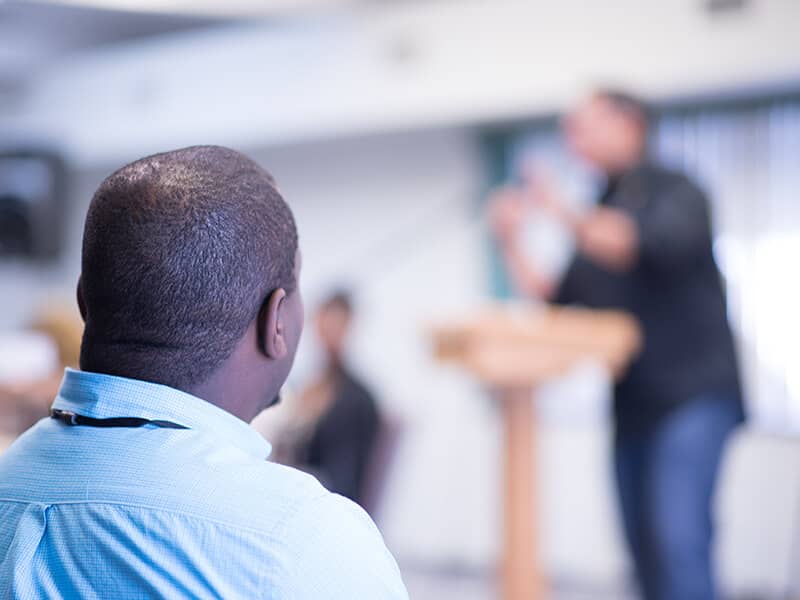It was John Winthrop, of course, who told his Puritan audience crossing the Atlantic "we must consider that we shall be a city upon a hill, the eyes of all people are upon us." Ever since, it has been a powerful image in American political and religious discourse, yet one vulnerable to arrogance and hubris.
Over time, interpretations have varied. Early on it was affirmed that America is an example: We were to model virtue, to serve as an example to the world. We would be known for our noble ideals and new beginnings. This view carried great promise and optimism if for no other reason because of its boldness. As the evangelical preacher Lyman Beecher said in 1827, ours is a "great example" of which the world might "take knowledge." Incredibly, without CNN, the Internet, or any other mode of instant communication, these early Americans believed that the light from this city would shine in distant places and be looked upon as a beacon of hope.
But by the 1840s, this vision was tarnished by expansionist goals. The country was driven by a presumed Manifest Destiny to expand its orbit: We were the "millennial nation" that would lead the way in the making of a new and better world. Economic, political, and religious themes all came together in support of the forceful extension of the nation's interests, beliefs and values. Lyman Beecher himself slipped into such thinking when he spoke of the country as leading the world until, as he said, "the world's hope is secure..the whole earth is free..then will the trumpet of Jubilee sound, and the earth's debased millions will leap from the dust, and shake off their chains, and cry, 'Hosanna to the Son of David.'"
The rhetoric has changed, but we recognize this same visionary mix today. In his State of the Union Address for 2004, President Bush proclaimed, "The cause we serve is right, because it is the cause of all mankind." Earlier in 2003 in a speech to the National Endowment for Democracy, he argued that the United States seeks "to promote liberty around the world" because "liberty is both the plan of Heaven for humanity, and the best hope for progress here on earth..The advance of freedom is the calling of our time.the calling of our country.the design of nature.(and) the direction of history." We must extend freedom elsewhere, he has often said, to make sure we have security at home.
Might his second inaugural mark any change of vision? A change would be welcomed for reasons important to our country and the world.
For one thing, it might break us out of the psychology of Manifest Destiny that lurks behind our global reach today. Territorial expansion has been transformed to include resources such as oil, military bases, and economic markets. And freedom and prosperity, that is, the fruits of the market system, are now the gifts America has to offer the world. If the first entrenches American power by means of economic and political control, the second raises unrealistic expectations through exports of technology, consumable goods, and dreams of human betterment. Depending on how this plays out, the stakes are greater than ever before for widespread alienation and resistance against the United States.
Beyond global intervention and self-critique, there is also the question of how religion and politics should mix. In our religiously diverse country today, the blending of any one particularistic religious language with national political rhetoric is potentially dangerous. Linguistics professors like George Lakoff have taught us that in matters of faith and politics we think in "frames" - the idea that symbols and identities hang together in sets, often in subtle ways. Political appeals for national defense, protection, and security in a world defined as unsafe at the hands of evil-doers, for example, mesh well with belief in a crusading, monarchical God.
But the country can ill afford a theology of empire at this moment in history, certainly not one based upon an exclusivist theology. The first Bush inaugural is still remembered for setting a divisive religious tone. Now, four years later--after the terrorist attacks of 9/11, a lingering and uncertain war in Iraq, and most recently, the world having been shaken by the tsunami catastrophe in South Asia - the president should present the country to the world as strong and caring enough to lead in raising resources for rebuilding the near-destroyed countries, yet as cautious in the use of religious rhetoric for justifying political and military actions, so as not to fuel further religious passions that are bound up with militant politics in the Middle East and elsewhere.
American civil religion forces upon a president the role of national theologian, an awesome responsibility in any age. He must relate the country to a God who is big enough to include all the diverse believers of the country. And in the best of the civil religious heritage one does not boast lightly about God being on our side. To the contrary, the nation is to be reminded that it stands under higher judgment. Without this prophetic element, civil religion morphs into religious nationalism.
Mr. President, why not seize the moment to offer a vision of inclusiveness that speaks less to "us" in a narrow sense and more to "all" of us, both domestically and globally? Engage people of many faiths with a broad frame of unifying teachings and symbols relating to the sacred. Assure those of no faith that they too are good Americans. Try to awaken emotions within people of good will everywhere to principles of national well-being, international justice, and universal human values.
A city upon a hill whose light shines in this way has enormous power of attraction--especially now in our fragmented, torn world. The best of the country's heritage--our integrity and good example--is what we should offer, both to ourselves and to the world.

